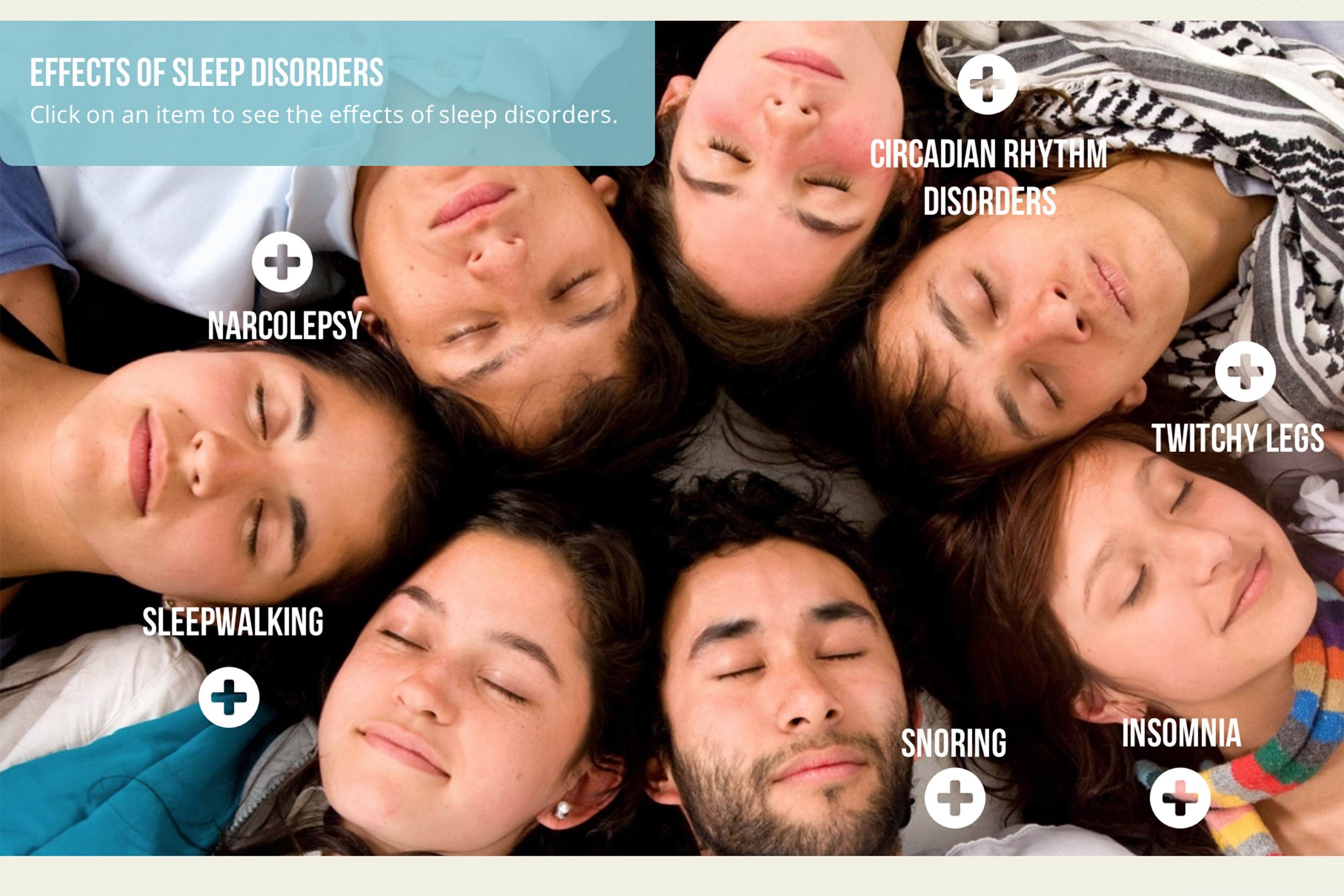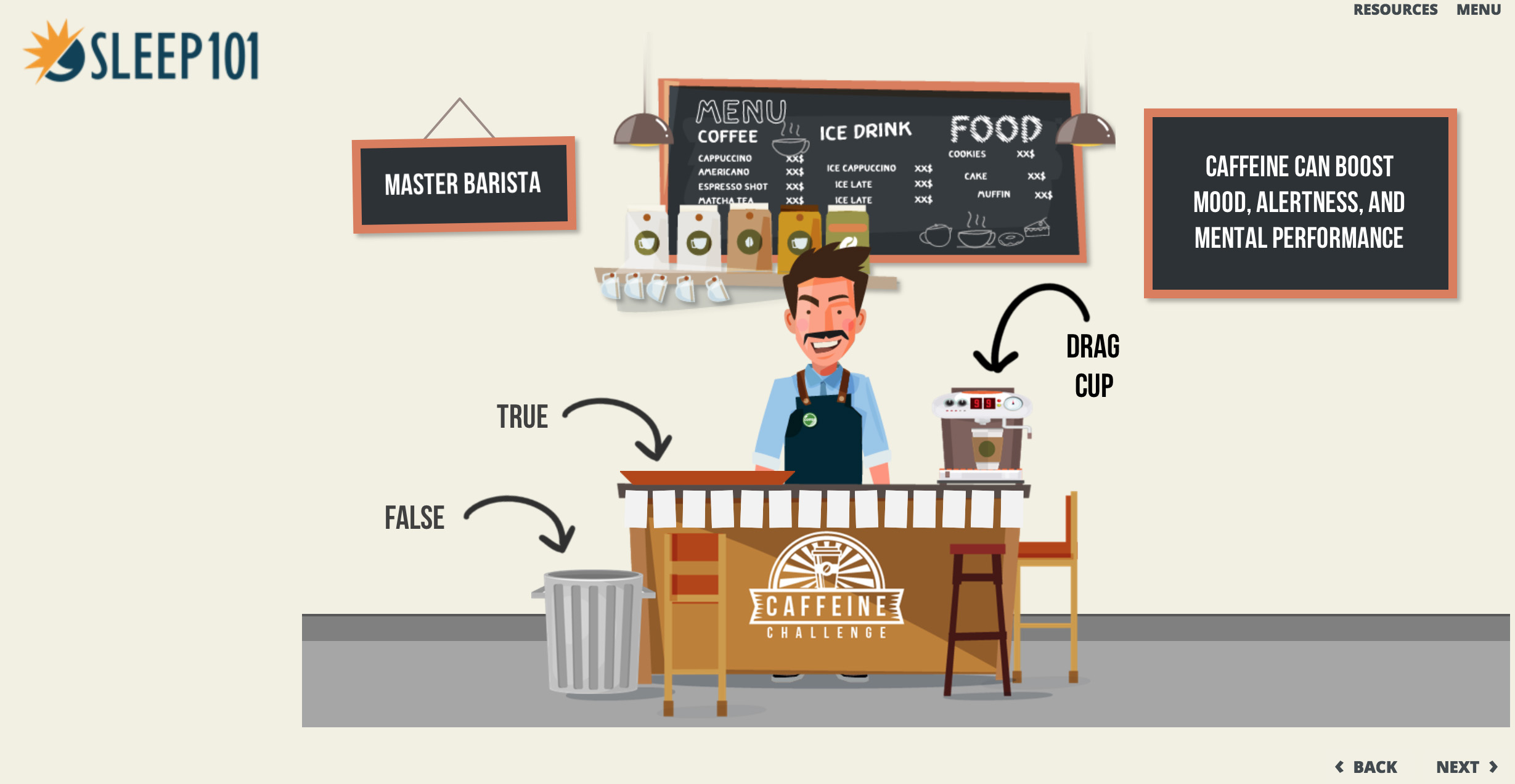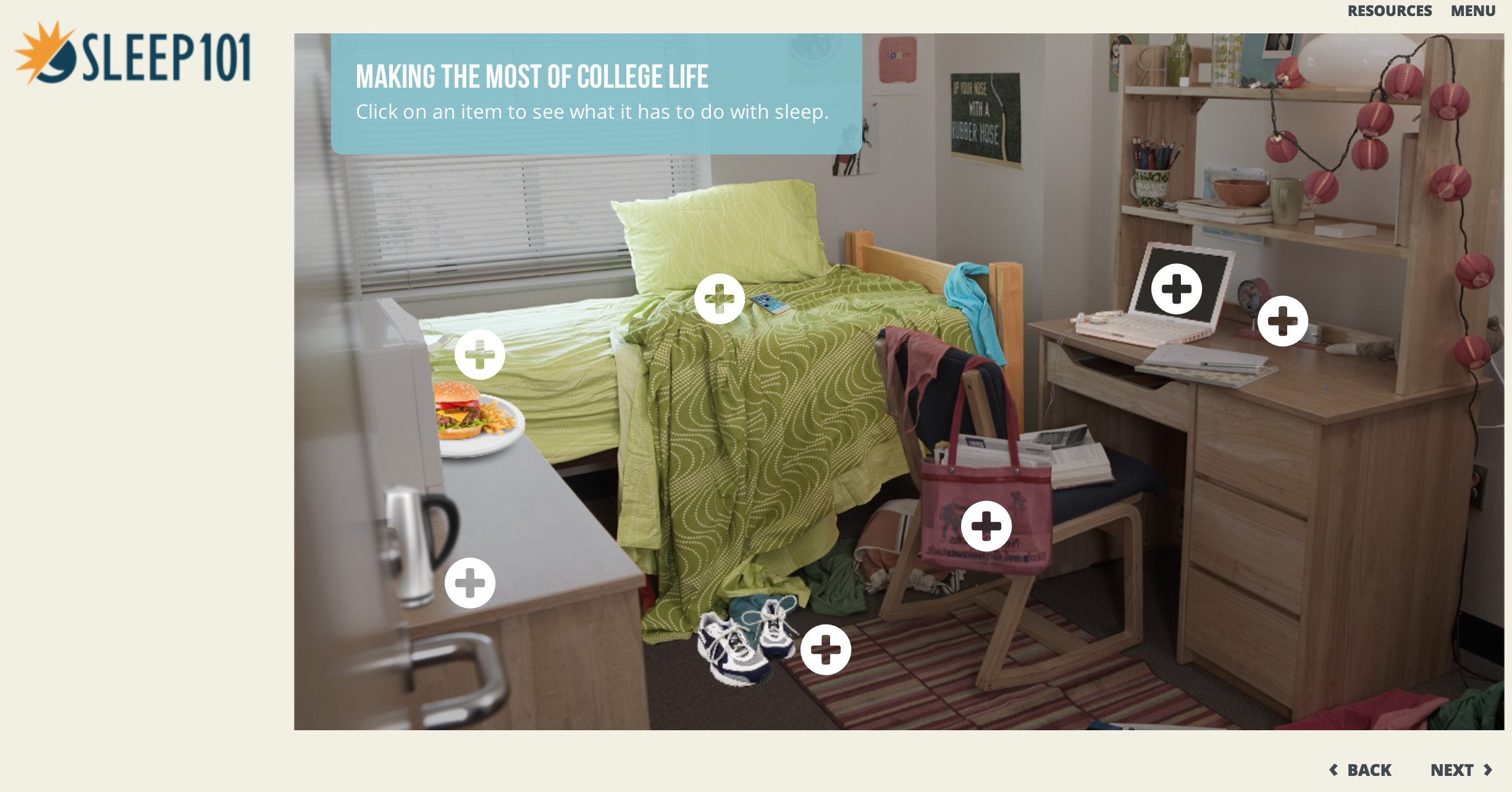
Before arriving on campus, the incoming Class of 2022 has been asked to complete “Sleep 101,” an interactive online module designed to educate students on the importance of sleep health.
Credit: Sleep Matters Initiative/Brigham and Women’s Hospital
Countering college’s culture of sleeplessness
Class of 2022 first to be asked to take interactive, online sleep course designed by Harvard faculty
A full night’s sleep is hardly a tradition for college first-years. At Harvard, with new people and experiences to discover in a storied city, plenty of 18-year-olds would rather be out on the town than counting sheep.
But this year, students in the Class of 2022 may decide to turn in a bit earlier, thanks to the work of Raymond So ’21 and Charles Czeisler ’74, the Baldino Professor of Sleep Medicine at Harvard Medical School (HMS) and chief, Division of Sleep and Circadian Disorders at Harvard-affiliated Brigham and Women’s Hospital (BWH).
For the first time at Harvard, incoming first-years are being asked to complete “Sleep 101″ by bedtime on move-in day (Aug. 27). A component of the Sleep Matters Initiative at BWH, “Sleep 101” is an interactive module designed to increase student awareness of the health and performance implications of sleep, as well as provide tips and strategies on how best to maintain a healthy sleep schedule in a competitive, busy environment such as college.
Though sleep is a hygienic activity that doctors recommend take up a third of each day, some College students (and others) treat it more like a nuisance than a necessity. In academic environments, sleep deficiency can be a makeshift metric for achievement, with students boasting of how little shut-eye they get. Students often associate academic success with effort, and perhaps the most notorious and grueling rite of passage is the all-nighter.
The reality, obvious with hindsight and a good night’s sleep, is that all-nighters rarely produce the sought-after As, and no quantity of coffee can make one a better reader or writer.

This section of “Sleep 101” tests students on their knowledge of the effects of caffeine with a series of true or false questions.
Credit: Sleep Matters Initiative/Brigham and Women’s Hospital
The idea to implement sleep education occurred to So after taking Czeisler’s first-year seminar “Time for Sleep: Impact of Sleep Deficiency and Circadian Disruption in our 24/7 Culture” (reputedly one of the five coolest classes on campus). For his final project, So developed and disseminated a survey for students sleeping in the Yard dormitories about how noise impacted their sleep quality. An overwhelming majority felt that noise — most notably the morning bells that ring in the start of each school day — was disrupting their sleep.
Citing his survey, So submitted a proposal to the Undergraduate Council asking that the bells be rung later in the morning. It was summarily rejected. Scaling back, So requested and was granted funds to create a sleep-education initiative. With “Sleep 101” now completed by the Class of 2022, the next step will be to train Harvard proctors, tutors, and mental health liaisons in sleep cognizance. So hopes to use the rest of the funding to provide students with sleep aids such as eye masks and ear plugs.

Students can learn how their sleep is affected by various activities such as food, screen time, and exercise.
Credit: Sleep Matters Initiative/Brigham and Women’s Hospital
The preliminary results of “Sleep 101” are promising. A 2017 study published in the Southwest Journal of Pulmonary and Critical Care on the effects of the module by Pallas Snider Ziporyn ’10 and Stuart Quan, Gerald E. McGinnis Professor of Sleep Medicine at HMS, found students were less likely to drive drowsy or pull all-nighters after completing the course.
The initiative’s next steps remains to be seen.
“There are several different directions we want to go,” said So. “First, we plan to send a survey to the Class of 2022 to assess the impact ‘Sleep 101’ has had on their sleeping habits. Using such metrics, we hope to persuade the College to require ‘Sleep 101’ for all current students … We also hope that other colleges will follow Harvard’s example and implement ‘Sleep 101’ at their campuses.
“In this way can we effectively change the college culture of sleep.”
“Sleep 101” was made possible by a generous donation from Stanley and Mary Ann Snider. The team behind “Sleep 101” and the Sleep Matters Initiative includes So, Czeisler, Quan, Ziporyn and Healthy Hours, based in Annapolis, Md.






